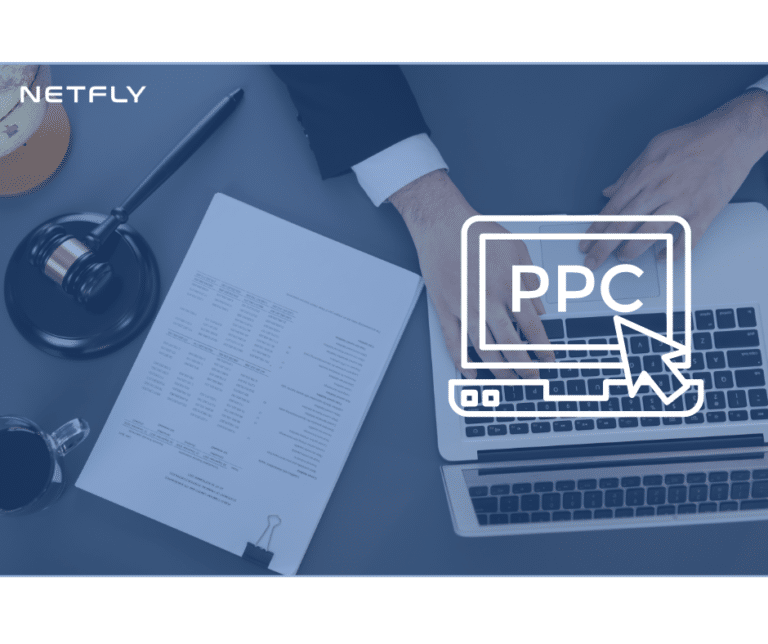When you think about the importance of brand positioning for law firms, consider how it builds client trust and sets your firm apart from the competition. It’s not just about visibility; it’s about attracting the right clients and fostering long-term loyalty. By honing in on your core strengths and highlighting your specialization, you create a unique voice that resonates with your target audience. But the benefits don’t stop there—consistent messaging and personalized communication play pivotal roles in reinforcing credibility. So, how exactly can these strategies transform your firm’s success?
Key Takeaways
- Enhances client trust through personalized communication and testimonials.
- Differentiates the firm from competitors by highlighting core strengths and niche specializations.
- Attracts ideal clients with tailored marketing messages and a refined online presence.
- Increases firm visibility through optimized online presence, community engagement, and consistent messaging.
- Builds long-term loyalty by delivering exceptional client service and maintaining genuine relationships.
Enhancing Client Trust
Establishing a foundation of trust with your clients is essential for creating a strong brand position for your law firm. Trust not only fosters long-term relationships but also transforms satisfied clients into brand ambassadors. A strategic way to build this trust is by leveraging client testimonials. Real-life accounts of successful case outcomes and positive experiences highlight your firm’s competence and reliability. Prospective clients are more likely to feel confident in your services when they see evidence of previous clients’ satisfaction.
In addition, personalized communication is a cornerstone in enhancing client trust. By tailoring your interactions to each client’s specific needs and circumstances, you demonstrate genuine concern and dedication. This involves more than just addressing clients by their names; it means understanding their unique legal challenges and providing customized solutions. Personalized emails, timely updates on case progress, and one-on-one consultations are practical ways to show clients that they are valued individuals, not just case numbers.
When you integrate client testimonials and personalized communication into your practice, you create a powerful trust-building mechanism. These elements work synergistically to reinforce your firm’s credibility and client-centric approach. Prospective clients will see that you care deeply about your clients’ well-being and that your firm delivers on its promises.
Differentiating From Competitors
While building client trust is essential, setting your law firm apart from competitors requires strategic differentiation. Your firm needs a unique identity that resonates with potential clients and distinguishes you in a crowded market. It’s not enough to merely provide excellent legal services; you must also communicate what makes your firm distinct.
Start by identifying your firm’s core strengths and values. Do you specialize in a niche area of law? Are you known for exceptional client service or innovative legal solutions? Highlight these aspects to create a unique identity. For instance, if your firm excels in technology law, emphasize your expertise and how it benefits tech startups. This specialization can give you a competitive edge, making you the go-to firm in that sector.
Next, consider your firm’s brand voice and visual identity. Consistent messaging and professional design elements contribute to a cohesive brand that clients can recognize and trust. Your website, social media, and marketing materials should all reflect this unique identity. Remember, differentiation isn’t just about being different; it’s about being memorable and relevant to your target audience.
Additionally, leverage client testimonials and case studies to showcase your firm’s successes. Real-world examples of how you’ve helped clients can effectively illustrate your firm’s unique capabilities and reinforce your competitive edge. Prospective clients are more likely to choose a firm with a proven track record of delivering results.
Attracting Ideal Clients
To attract your ideal clients, focus on crafting tailored marketing messages that speak directly to their specific needs and concerns. Start by understanding your client demographics. Are they individuals or businesses? What industries do they represent? What are their pain points? By pinpointing these details, you can create content and marketing strategies that resonate powerfully with them.
Next, leverage your service specialization to differentiate and appeal to your target audience. If your firm has expertise in corporate law, highlight the complexities of business regulations you navigate with ease. Should your practice focus on family law, emphasize your compassionate approach in sensitive matters like divorce and child custody. This not only positions you as an expert but also builds trust, making clients feel understood and confident in your capabilities.
Use client testimonials and case studies to further substantiate your claims. Real-life examples of how you’ve successfully resolved issues similar to your prospective clients’ concerns can be incredibly persuasive. These stories not only validate your expertise but also humanize your firm, making it easier for potential clients to see the tangible benefits of working with you.
Additionally, refine your website and social media presence to reflect your brand positioning. Make sure that the language, visuals, and overall user experience are tailored to your target client demographics. For instance, a sleek, professional design might appeal more to corporate clients, while a warm, approachable aesthetic could attract individuals seeking personal legal services.
Increasing Firm Visibility
Maximize your law firm’s visibility by leveraging both traditional and digital marketing channels to reach a broader audience and establish a strong presence in your industry. Start by optimizing your online presence. Guarantee your website is professional, user-friendly, and optimized for search engines. Regularly update your blog with insightful content that addresses common legal questions and showcases your expertise. Utilize social media platforms to engage with your audience, share valuable information, and highlight your firm’s achievements.
Invest in community engagement to further increase your visibility. Sponsor local events, participate in charity drives, and offer free legal workshops. By actively contributing to your community, you build goodwill and establish your firm as a trusted and involved presence. This not only boosts your reputation but also creates valuable networking opportunities.
Traditional marketing methods shouldn’t be neglected either. Advertise in local newspapers, legal journals, and on billboards to make sure that your firm is visible to a wider audience. Consider hosting or speaking at industry conferences to showcase your expertise and connect with potential clients and referral sources.
Email marketing remains a powerful tool for maintaining visibility. Regularly send out newsletters with updates on legal issues, firm news, and upcoming events. This keeps your firm top of mind for both current and potential clients.
Building Long-Term Loyalty
Building long-term loyalty starts with delivering exceptional client service and establishing genuine relationships. When clients feel valued and understood, they’re more likely to return to your firm for future legal needs. It’s not just about solving their immediate problems; it’s about creating an emotional connection that fosters trust and reliability.
You can’t underestimate the importance of client retention in your business strategy. Retaining clients is often more cost-effective than acquiring new ones, and loyal clients are more likely to refer others to your firm. By positioning your brand as one that prioritizes client satisfaction and care, you naturally set the stage for enduring loyalty.
To build this loyalty, you’ve got to go beyond the basics. Personalized communication is key. Send follow-up emails, check in periodically, and remember important dates and milestones in your clients’ lives. These small gestures show that you care about them as individuals, not just as cases.
Transparency and integrity are also vital. Clients appreciate honesty, even when the news isn’t good. Keeping them informed every step of the way builds trust and reinforces the emotional connection. Remember, a well-informed client is a satisfied client.
Don’t forget the power of feedback. Regularly ask your clients for their opinions on your services. This not only shows that you value their input but also helps you continually improve. Addressing their concerns promptly can turn a dissatisfied client into a loyal advocate for your firm.
In essence, your goal is to make each client feel like they’re your only client. When you achieve this, you’ll find that long-term loyalty isn’t just an aspiration; it’s a reality.
Supporting Marketing Efforts
When you align your marketing efforts with your brand’s core values and strengths, you create a cohesive message that resonates with your target audience. This alignment isn’t just about catchy slogans or aesthetic logos; it’s about ensuring that every piece of content, from blog posts to social media updates, reflects the ethos and expertise of your firm. This content consistency solidifies your market perception, making it easier for potential clients to understand what you stand for and why they should choose you over the competition.
By strategically positioning your brand, you can streamline your marketing campaigns to highlight your unique selling propositions. Think about it: a well-defined brand position allows you to craft targeted messages that speak directly to the needs and concerns of your ideal clients. When your marketing content consistently mirrors your brand values, it builds trust and credibility over time. This trust translates into higher engagement, better client retention, and a stronger reputation in the legal industry.
Moreover, a clear brand position helps you efficiently allocate your marketing resources. Instead of scattering efforts across various unfocused campaigns, you can concentrate on initiatives that reinforce your brand’s strengths and values. This not only optimizes your budget but also amplifies your impact in the marketplace.
Frequently Asked Questions
How Does Brand Positioning Impact Law Firm Pricing Strategies?
Brand positioning directly impacts your pricing strategies by influencing client perception and achieving market differentiation. When clients see your firm as unique and high-value, they’re more likely to accept and even expect premium pricing.
What Role Does Brand Positioning Play in Law Firm Mergers?
Brand positioning guarantees client alignment and market differentiation in mergers. You’ll attract compatible clients and stand out in the crowded market, making the merger smoother and more beneficial for both firms involved.
Can Brand Positioning Affect Employee Recruitment and Retention in Law Firms?
Brand positioning directly impacts talent acquisition and employee morale. When you position your law firm as innovative and reputable, you’re more likely to attract top talent and retain motivated employees who believe in your firm’s vision.
How Does Digital Transformation Influence Brand Positioning in Law Firms?
Digital transformation is vital for your brand positioning. Leveraging social media enhances visibility, while optimizing client experience through digital tools guarantees satisfaction. Both elements strategically elevate your firm’s reputation and attract discerning clients in a competitive market.
What Are Common Pitfalls in Law Firm Brand Positioning Efforts?
You often face pitfalls like neglecting niche focus and not differentiating in a market saturation. Make sure your brand stands out by targeting specific legal areas and effectively communicating your unique value proposition to your audience.
Conclusion
To sum up, strategically positioning your brand will enhance client trust, help you stand out from competitors, attract your ideal clients, and increase your firm’s visibility. This approach not only fosters long-term loyalty but also supports your marketing efforts. Do not underestimate the power of a well-crafted brand—it is your key to establishing a strong reputation and driving sustained success in a competitive market. Take action now and elevate your law firm’s presence.










